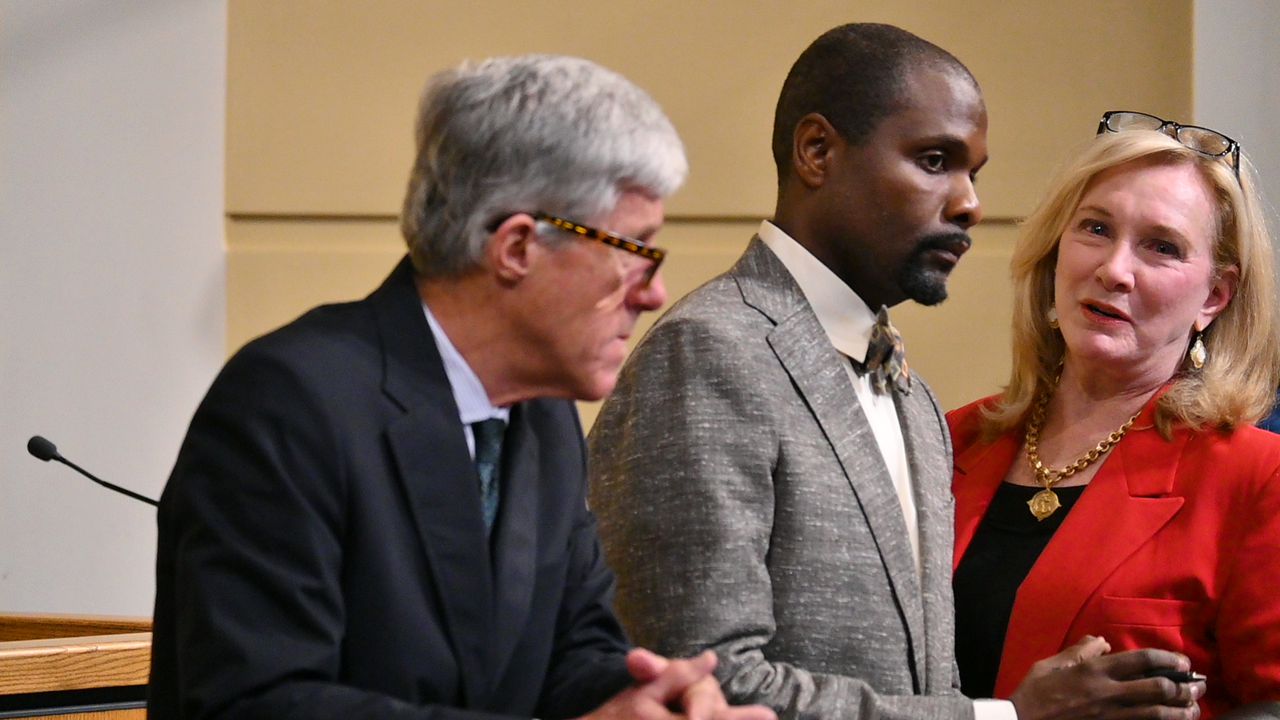After annexation vote, Mobile to look at ending police and fire services for 71,000 residents
Mobile City Councilman Joel Daves signaled Tuesday that the city could look at curtailing its three-mile police jurisdiction after a special election next week that could determine of approximately 26,000 people should be annexed into the city limits.
Daves, speaking at the end of the weekly council meeting, said “it would be appropriate for the City Council” to consider whether “it makes sense” for city government to continue providing police and fire protection to people living outside the city limits.
Related content:
“I think after the annexation election, we need to look at it,” Daves said. “It would be good for the City Council to study this issue again.”
At issue could be whether approximately 71,000 residents – a population about the size of Dothan – who reside outside the city limits should continue to receive police and fire protection services from the City of Mobile after the annexation election next Tuesday.
“After the folks have had the opportunity to join the City of Mobile, we’ll have to look at the provision of (providing) police and fire in the police jurisdiction and make a determination if the continuation of these services is good for the citizens of Mobile,” said Daves.
James Barber, chief of staff to Mobile Mayor Sandy Stimpson, said the city is prepared to analyze a “phased approach” toward withdrawing police and fire protection services outside of Mobile’s municipal boundaries.
“We have tried to communicate that,” Barber said. “There is a feeling (police and fire services) will always be there. We’ve been mindful to communicate those efforts.”
Daves has weighed the potential of having Mobile terminate city services within its police jurisdiction before. In 2019, Daves pitched an ordinance that would have repealed the police jurisdiction’s services after calculating that the city spent more than $24.5 million each year in providing public services within the jurisdiction west of Mobile’s city limits.
Daves said any effort to withdraw services within the jurisdiction would be orderly, noting that the 2019 proposal called for a two-year phase-out.
The 2019 proposal did not advance because the city’s annexation plan did not move forward for consideration.
“What if we rolled back the three miles to 1-1/2 miles?” Daves said, pondering possible outcomes. “How do we help the people in the police jurisdiction transition to a fire district if we pull back?”
He added, “The primary issue that residents have had the opportunity now to join the City of Mobile and pay their fair share. After the referendum next week, I would hope we can look into this matter more.”
Voters in four areas west of Mobile’s city limits will get a chance to vote during next week’s special election on whether they want to be annexed into the city. If all voters approve in each area vote in support of annexation, the city’s overall population could jump well above 200,000 residents and make Mobile the second-largest city in Alabama trailing only fast-growing Huntsville. Mobile, with a shrinking population of 184,900 residents, is currently the fourth-largest city in the state trailing Huntsville, Birmingham, and Montgomery.
Councilman William Carroll said the city, if it decides to alter its police jurisdiction, will not press forward with something that results in “unintended consequences.”
“I think it’s important for everyone to know what the possibilities area,” said Carroll. “I wouldn’t want to put anyone in harm or take away any service that creates an unintended consequence. We need to be very careful on how we go about any action in the withdrawal of the police jurisdiction.”
Alabama cities have the option of withdrawing their police jurisdictions. The state is the only one with extraterritorial areas for police services outside of city limits. But legislation in 2021, sponsored by Republican Senator Chris Elliott of Josephine in Baldwin County, provided cities more flexibility to determine if they wanted to roll back those jurisdictions in small, half-mile increments. The jurisdictions, at a maximum, extend out three miles beyond a city’s corporate boundaries.
“Municipalities have always had the authority to role back the police jurisdictions at their discretion,” Elliott said. “They can do that.”
Elliott said Daves was correct to alert residents about the potential of rolling back those city services after the annexation vote. He recognized that some cities have already begun doing so, including Saraland which voted in April to eliminate its police jurisdiction effective on January 1, 2024.
“From a municipal leaders standpoint, if I was wearing that hat, I don’t know why I would be spending limited municipal resources outside (city) limits,” Elliott said. “It’s counterintuitive. And those people looking at (Mobile’s) annexation ought to ask themselves, ‘Do we want to continue to receive City of Mobile services?’”
